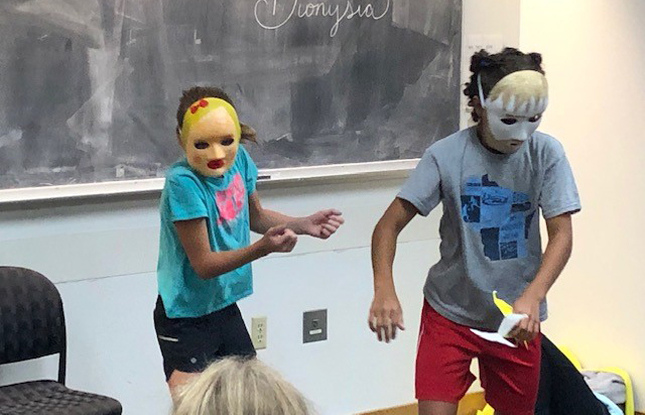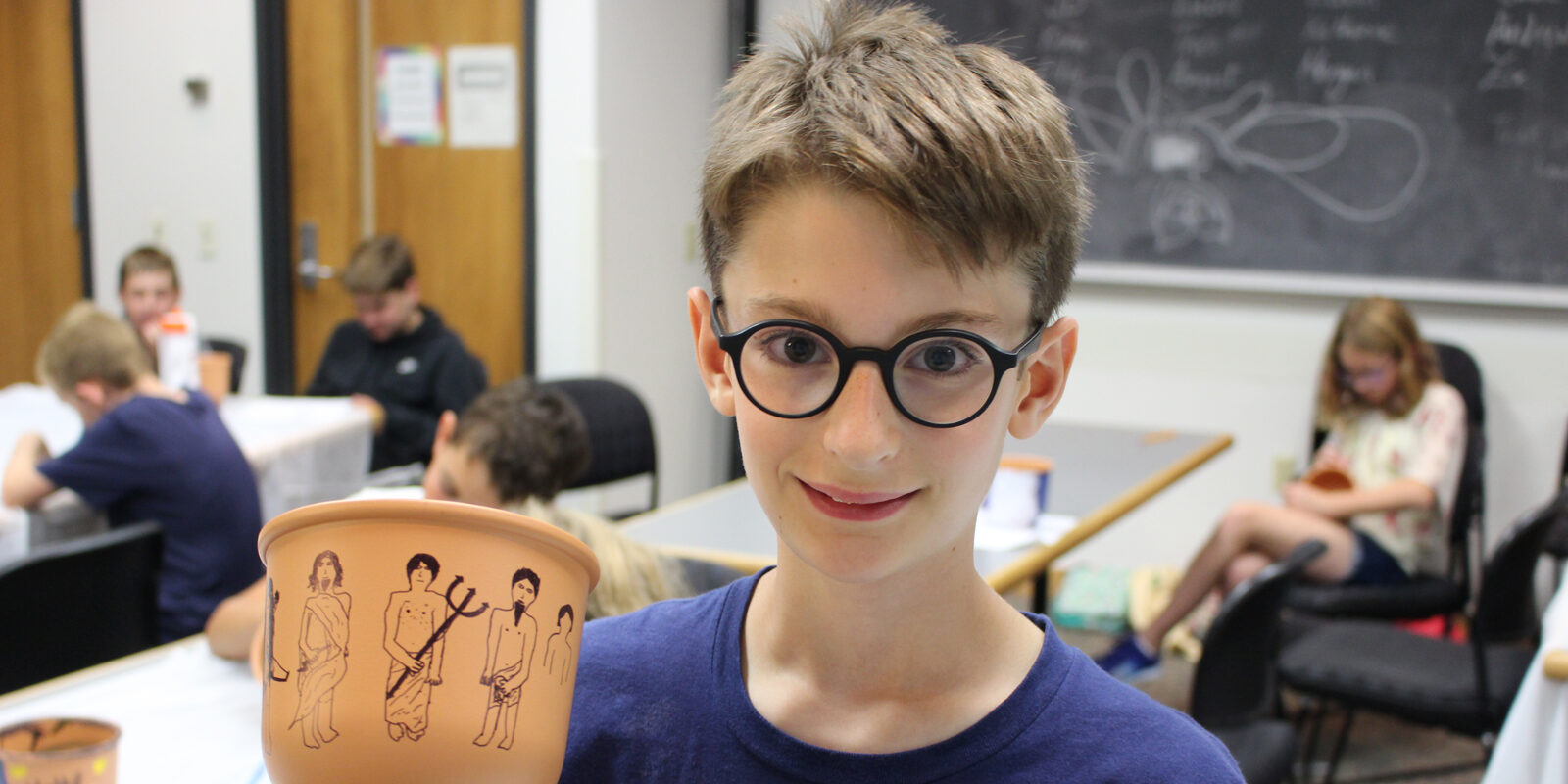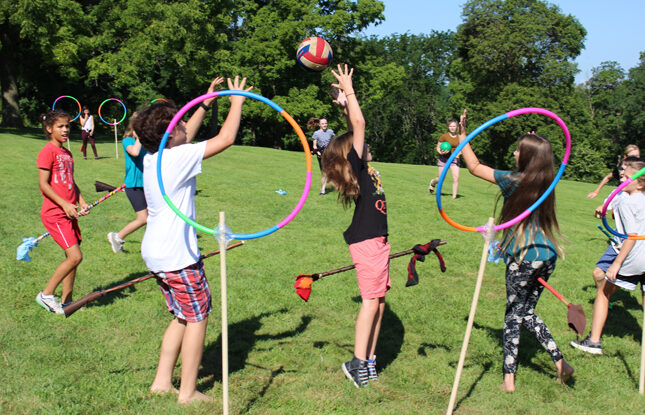The two girls, each wearing painted masks they designed themselves, circle each other quickly, arms up and at the ready. One lunges with her cardboard lightning bolt, only to be met by a blow from the other one’s cardboard hammer. The bolt-wielder theatrically flops to the floor.
Thus ends the first part of “The Duel of the Doofuses,” an original skit created in the ancient Greek style by Madison middle-schoolers Mia Ozanne and Addy and Izzy Frantz. It’s all part of Classics Camp, a summer event for middle schoolers hosted by the UW-Madison Department of Classical and Ancient Near Eastern Studies (CANES) and the Language Institute. For two weeks in August, fifth through eighth graders come together to learn about and experience the wonders and legacy of ancient Greece and Rome. The kids make their own togas and wax writing tablets, visit museums on campus to see ancient artifacts and hear from CANES faculty and instructional staff who share their expertise on kid-worthy topics like the Trojan War, Roman weapons and Greek toilets. And, of course, they put on Greek comedies and tragedies worthy of Sophocles and Euripides. Well, sort of, anyway.
CANES department chair William Aylward, the camp’s director, characterizes it as a means of giving back to the community. But it’s also something else.
“We’re raising awareness about the humanities,” Aylward says. “And especially literature and the arts. These are areas of study we hope students will seek out when they get to high school and college.”
Not surprisingly, many of the campers are drawn to the more sensational elements of the Greek and Roman myths. On skit day, several of the presentations feature playful throwdowns, mock stabbings and the theatrical death of a minotaur.

But what’s more surprising is the other subjects that speak to them. Many of the kids, including Ozanne and the Frantz sisters, talk about visiting the Chazen Museum of Art and how cool they think Greek and Roman architecture is. Several are experiencing the camp for a second year. Thanks to a grant from the Society for Classical Studies, scholarships were available to economically disadvantaged children.
Aylward delivered two presentations to campers this year, one on the archaeology of Troy and the Trojan War (Aylward trained several UW undergrads in archaeology at Troy over 16 years)--and the other about piecing together the puzzle of an ancient shipwreck carrying marble to the Temple of Apollo in Claros, near Ephesus in modern Turkey. He was struck by the campers’ reactions to both.
“They really tuned in to the personal stories,” he notes. “They wanted to know who had survived, and what happened to all of them. There were so many questions, I wasn’t able to finish either of my presentations.”
MC La Velle, a classics graduate student who’s served as the camp’s lead curriculum designer and counselor since it began last year, is a great role model for the campers: She’s currently in the market for a job teaching classics.
“I just love how creative the kids are,” she says. “it’s actually pretty inspiring.”
That creativity is both impressive and a keen snapshot of tween life. In her group’s skit, Addy Frantz, plays Hera, the goddess of “love, power and soccer.” At last year’s camp, the kids created a skit that suggested the Trojan War had begun because the wi-fi went out in Greece—and Helen was the only one who knew the password.
This year’s Classics Camp, held mostly at the UW Biotechnology Center, had a waiting list. Next year, says Aylward, the department will likely expand it, potentially even offering a full second camp.
“Some kids may not know they can study the Olympians and ancient Greek temples when they get to college,” he says. “This is a way to let them know it’s possible.”

